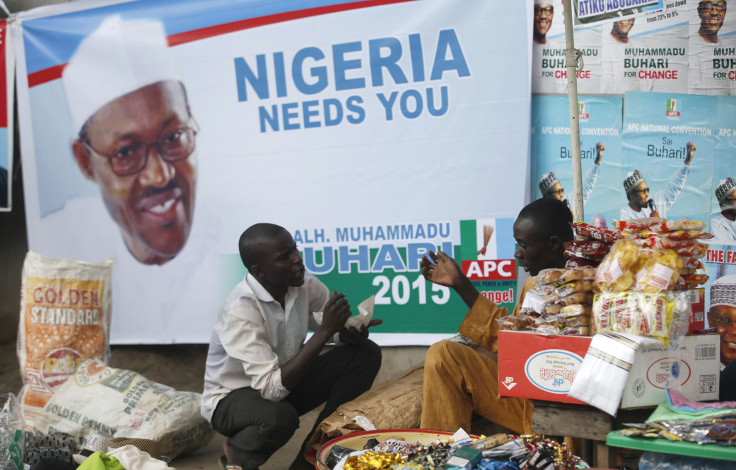As Nigeria's Election Looms, Boko Haram Violence Could Have Economic, Political Impact

Boko Haram recently seized an important military base in the Nigeria’s northeast, but soon the militant Islamist group could also disrupt the general election and the Nigerian economy.
After years of breakneck economic growth, Nigeria has become a powerful economy with great promise. But as Boko Haram gains in the country’s poverty-stricken northeast, increasing tension between the group and government has changed officials’ focus from economics to security. The struggle is also putting a logistical strain on the voters themselves.
“Nigeria is the continent’s biggest economy and most populous country, and so instability in Nigeria could have dire economic impact for the region,” wrote Jideofor Adibe, a senior lecturer at Nasarawa State University in Nigeria, in a recent report for the Washington, D.C.-based Brookings Institution.
Last year Nigeria revised its gross domestic product calculations to 5.4 percent, with strong growth projections for 2015, according to the International Monetary Fund.
Still, analysts say the success is tenuous.
“There are prospects of strong economic growth although downside risks remain entrenched,” reads a report from the African Development Bank, which notes that “security challenges in the northeastern part of the country,” and “possible distraction from the ongoing reforms as a result of the upcoming 2015 general elections” are among the most serious challenges Nigeria now faces.
Nigerians will go to the polls on Feb. 14, to decide between incumbent President Goodluck Jonathan, of the People’s Democratic Party, and former military leader Muhammadu Buhari, of the All Progressive Congress. Jonathan’s supporters say he is largely responsible for economic growth, and the country avoided mass Ebola outbreaks like others in West Africa. Critics, meanwhile, cite the nation’s rising unemployment rate and increasing gap between Nigeria’s rich and poor.
Nigerian elections are typically fraught with violent unrest, and this year is no different—but a government and military, stretched thin from fighting Boko Haram, may find it more difficult than usual keeping the peace. A depressed voter turnout could be the least of their worries.
“Elections are extraordinarily expensive,” says John Campbell, former U.S. ambassador to Nigeria and senior fellow at the New York City-based Council on Foreign Relations. He noted that the country’s national assembly authorized the government to borrow $1 billion to fight Boko Haram earlier this year, which will impact how much the government will spend on campaigns, but added that local officials have their own sources of funding.
Nigeria has been holding elections since the end of military rule in 1999. While international observers applaud the democratic process, each election has been marked with increased tensions and riots from voters who feel the vote was corrupted.
Currently, the three northern states of Adamawa, Borno and Yobe are under a state of emergency due to increasing violence from Boko Haram, the militant Islamist group whose name translates to “Western education is forbidden,” and has been responsible for thousands of deaths and kidnappings since 2009, according to the CFR’s Nigeria Security Tracker, with increasing frequency in recent months.
Beyond the macroeconomic issues, Boko Haram has created a logistical nightmare for the voters themselves. Hundreds of thousands of people have fled their homes for safer regions, according to data from the United Nations, but Nigerian election laws require that citizens can only vote in the area they are registered, which has removed a substantial amount of voters.
The country’s Independent National Electoral Commission (INEC) said in December that it “is hoping that some amendment will happen to the legal framework to make it feasible for IDPs to vote.”
Even if the laws do change, many voters may fret what could happen at the polls themselves, especially in more remote areas.
“Nigerians have a commitment to democracy, they want to vote,” said Peter Pham, director of the Africa Center at the Atlantic Council. “But the question’s going to be whether people will stick their necks out with the danger that the person behind you might be a suicide bomber.”
Pham has observed every democratic election Nigeria has ever held, in partnership with other observers from NGOs and agencies around the world. He said that unrest is common, but this year he is worried about the military’s ability to control riots as well as the threat from Boko Haram.
He noted that, while the Nigerian military forces are substantial, there simply aren’t enough to cover polling stations in every part of the country. Though it’s likely that local leaders will hire their own security teams to help keep the peace, “this cannot help but have an impact on the election,” he said.
© Copyright IBTimes 2025. All rights reserved.






















